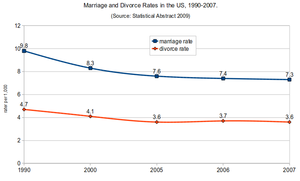Nulliparity isn’t jargon for Jimmy Buffet haters. On the contrary, I suspect there might be a significant overlap between the Parrothead and nulliparity lifestyles!
Deployed infrequently outside of the medical context, a nulliparity definition demands clarification if for no other reason than that it arises from time to time on Why No Kids?
Derived from Latin, the etymology of nulliparity is straightforward:
- nullus, none
- parere, to bear
So, in simplest terms, a usable nulliparity definition would be the condition of not bearing offspring (normally applied to a human woman).
A medical term used to refer to a condition or state in which a woman has never given birth to a child, or has never carried a pregnancy. (biology online)
Nulliparity vs. Nullipara
Although I understand why this term evolved to refer almost exclusively to women (men being biologically excepted from pregnancy), I would propose a nulliparity definition that is broader and more inclusive, applying to women and men who have not born offspring. Pregnancy and childbearing, after all, does generally imply the participation of a male in the creative process despite the disparity in inputs (ie. a few minutes versus 9 months!)
That said, the term nullipara specifically refers to a woman who has never given birth.
A female who has never given birth to a child, or has never carried a pregnancy. (biology online)
Choosing Nulliparity
This latter term, although obviously derived from the same Latin root, was unfamiliar to me until recently when I discovered Rhiannon Alton’s blog, Nullipara Life while searching for breeder bingo examples. A catchy title from a woman unabashedly committed to her childfree choice.
Don’t ask me when I’m going to have kids unless you’d like to hear my smart-ass response. I do not want kids. Parenthood is a choice, not an obligation. Some people might think there’s no point to me getting married if I’m not going to have kids…this is a completely asinine and ignorant thing to say. You see, my fiance is more to me than just a reproductive organ. I am not defined by my uterus, so please don’t tell me what I should be doing with it. Also, don’t tell me I’ll change my mind in a few years. How would you feel if I told you you’d change your mind about being a mother in a few years? Think about that the next time you try and pass judgment on me. (Rhiannon Alton)
Nulliparity, folks, is not the exclusive domain of the “childfree by choice” crowd as it certainly includes the involuntarily childless, but the straightforward, efficiency of the term is powerfully, succinctly echoed in Ms. Alton’s comments:
- Parenthood is a choice, not an obligation.
- You see, my fiance is more to me than just a reproductive organ.
- I am not defined by my uterus…
Thanks for translating the life choice not to bear children into bold, bullet-point-able 21st century jargon, Ms. Alton! Any questions, folks? I suggest you start with Nullipara Life…
Related articles
- New Childfree Novel (childfreenews.blogspot.com)
- How to Explain your Childfree Choice (whynokids.com)
- Five Reasons Childfree Adults May Be Happier Than Parents (whynokids.com)





